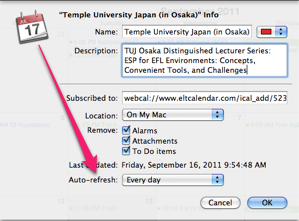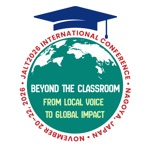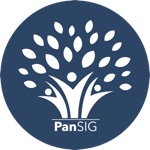Kitakyushu JALT:
Dictionary Use Panel
Date: Saturday, July 10th, 2010 Time: 6:30 PM - 8:00 PM
Speaker: Mark Gibson, Eiki Hattori, Go Yoshizawa and David Latz
Description:
In this Panel Discussion, four speakers (Mark Gibson, Eiki Hattori, Go Yoshizawa and David Latz) will investigate the use of dictionaries in EFL classes for children, junior high school students, high school students and university students. After introducing the problems associated with dictionary use in each of these settings, they will introduce methods and programs they have personally trialed to better incorporate dictionary work in their respective classrooms. After the Panel we will hold our annual summer social event. Information will be made available closer to the date.
Presentation 1: Dictionaries for Children
Mark Gibson has seen and used a number of dictionaries for young learners and found that for his purposes they are usually too in-depth or don't contain enough words. Because of this, he made his own. He will explain what he thinks makes a good dictionary for young learners and how to use it. Mark Gibson has taught in Pakistan and Thailand and has his own school in Kokura.
Presentation 2: Dictionaries for Junior High School Students
Students at Meiji Gakuen Junior High prepare for the school's infamous vocabulary tests by creating their own dictionaries with accent, part of speech, and Japanese definitions. Eiki Hattori will report on his interview survey with third-year students about how to improve the usefulness of these homemade dictionaries. Eiki Hattori, in his fifth year at Meiji, holds an MA in English Education from Hiroshima University and is interested in researching the effective teaching of writing and translation.
Presentation 3: Dictionaries for High School Students
The tight high school curriculum doesn't allow much instruction in dictionary use in the classroom. However, electronic dictionaries are potentially efficient tools for students. Go Yoshizawa will demonstrate some contrite usages of electronic dictionaries in his classes. Go Yoshizawa, who holds an MA in TESL from Oklahoma City University and is an eleven-year veteran at Meiji, has a special interest in the linguistics of sign language.
Presentation 4: Dictionaries for University Students
David will speak about a university vocabulary program aimed at increasing studentsf vocabulary to better achieve on the TOEIC-Bridge test. The program used the Longman Eiwa-jiten dictionary, which identifies the 1000 most common spoken and written English words. This formed the basis of weekly vocabulary tests. David Latz is an Australian, Brisbane-born university teacher whose professional interests include pragmatics and cultural codes of conversation.
Organization: Kitakyushu Chapter of the Japan Association for Language Teaching (Kitakyushu JALT)
Cost: JALT Members: free
Non-members: 1000 yen
Venue: International Conference Center (3F), Kokura
Location: Kitakyushu City, Fukuoka Prefecture, Japan
![]() Add this to iCal
Add this to iCal
![]() (Need help?)
(Need help?)
![]() Add to Outlook
Add to Outlook
![]() (Need help?)
(Need help?)
You can add this event to your iCal calendar.
- Click on the iCal icon. Your iCal software will start.
- Click 'Subscribe':

- Under 'Auto Refresh', select 'Every day' in case the the basic details change:

You can add this event to your Microsoft Outlook calendar.
- Click on the MS Outlook icon.
- See what happens.
- Tell us what happens. I don't have MS Outlook on a Windows computer, so I can't test it.
- If you click on the icon and nothing happens, do this:
- Right-click on the icon and save the file.
- According to Microsoft's support page, in Outlook's File menu, you should click Import and Export.
- Click to select Import an iCalendar or vCalendar file (*.vcs), and then click Next.
- Click to select the vCalendar file you've just saved, and then click Open.
Contact Kitakyushu JALT
Website: http://hosted.jalt.org/chapters/kq/
Email QR Code:





